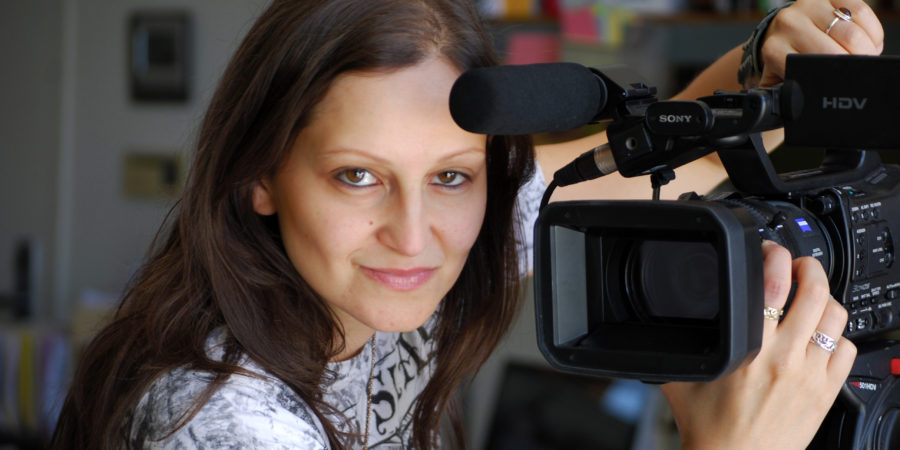Rolla Selbak and her family fled their home in the United Arab Emirates after the first Gulf War, when she was in high school. Being a Muslim immigrant in America was hard enough, but she also struggled with another part of identity: she was attracted to women.
When Selbak came out as queer at age 25, her family initially rejected her. Over time, they reconciled, but she always felt torn between her many different, strong identities that often conflicted with each other.
Selbak was interested in filmmaking from a young age, and after college, she slowly began teaching herself how to screenwrite, edit, and shoot. She began making short films, and then feature-length films, and the 39-year-old is now an award-winning, full-time filmmaker living in Los Angeles.
This past Saturday, Selbak world-premiered her new short film, “CHOKE,” at the 2018 Los Angeles Outfest Film Festival, the world’s leading LGBT film festival. While the film isn’t explicitly based on Selbak’s life, she incorporates themes inspired by her experiences and highlights the intersectionality of being a queer Muslim immigrant. This is the film’s official description: “CHOKE tells the story of a successful MMA champion who hides her refugee identity from her small American town, and the world. Sara and her family are Muslim refugees who’ve escaped the vicious war in Syria and flee to the Unites States, where she fights for a new life in the brutal sport of mix martial arts.”
“CHOKE” is going through the film festival circuit over the next few months, but after that, Selbak plans to put the film online so anyone can see it.
This is Selbak’s story of immigrating to the US, coming out as queer in a Muslim family, and exploring intersectionality in her filmmaking.
Profiles in Pride: What did coming out as queer look like for you?
Rolla Selbak: Coming out for me was kind of painful, but it ended up being one of the best things I did in my life. I came out when I was a little older; I was 25.
I grew up in the UAE. After the first Gulf War, we moved to the United States. I was in high school, so I went to high school and university in the States. But I grew up in a Muslim family. I actually wrote a Huffington Post piece called “Coming Out in a Muslim Family,” which was really cathartic. I posted it on Coming Out Day.
In any case, I came out. I got kicked out of the house, so I didn’t know where to go. I ended up going to San Francisco, and it was the city that saved me. After having my lowest point ever while there, I ended up growing and finding my community and my chosen family. And in the end, I reconciled with my mom.
She found out she had a terminal illness, and now I always say she’s the bravest woman I know. Because when she was growing up, being gay was even worse than having a child who had died; it was just was the worst thing you could possibly have. But to go from there to being so brave to stretch her heart and her mind to ensure that before she passed away, that we would have a beautiful, strong relationship — she did that. I’m so thankful she did.
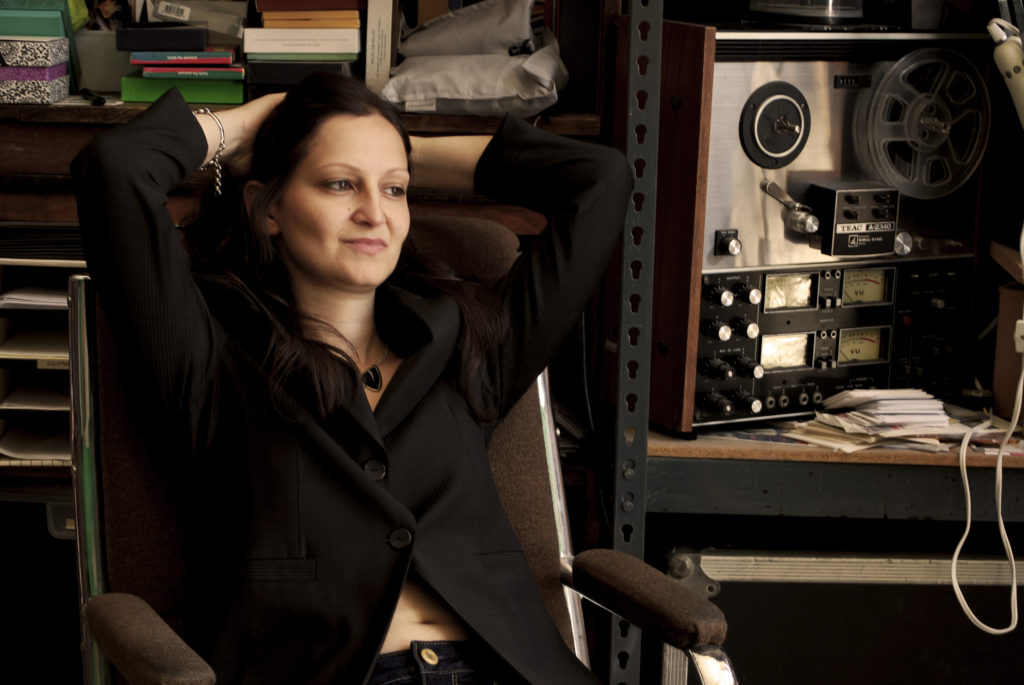
PIP: Absolutely. Based on your experience, do you think being Muslim and an immigrant make the experience of being a queer person more difficult?
RS: I definitely do. I think the reason why is because folks who have multiple, very strong identities that are not normalized identities within a society, they’re always the other, the other, the other. So when you’re part of multiple others, you end up being so otherized. There’s so much push and pull.
Simply that question of “who am I?” — no matter who you are, that’s always going to be something you question over and over and over. It’s never an easy question and probably will never have a complete answer, but I think folks who have multiple identities like I do definitely have even more of a tough time in that way.
You’re pushed and pulled between groups in order to feel accepted. Let’s say you’re pulled into the LGBT group because you’re accepted there, but then you’re Muslim and some people in LGBT groups may not understand that. So now you’re pushed into the Muslim group, but you’re also LGBT and you’re a woman, so now you’re pushed to the women group and the immigrant group. And then you’re pulled into…you know what I mean?
So at any point in time, I feel like my identity kind of changes colors. I’ve become used to it at this point, and I’m sure as I grow older, there will be less and less of that as I’m grounded somewhere.
Especially the immigrant experience; when someone asks me, “So where’s home? Where’s your home?” Just thinking about home, I have absolutely no clue. It’s a very hard thing to empathize with unless you’ve experienced it yourself, literally having no sense of where your home is and instead having what I call multiple lifetimes within a life, that you can refer to as “this was the lifetime when that happened; this is the lifetime I was here,” but no sense of “this is the lifetime I’m from.”
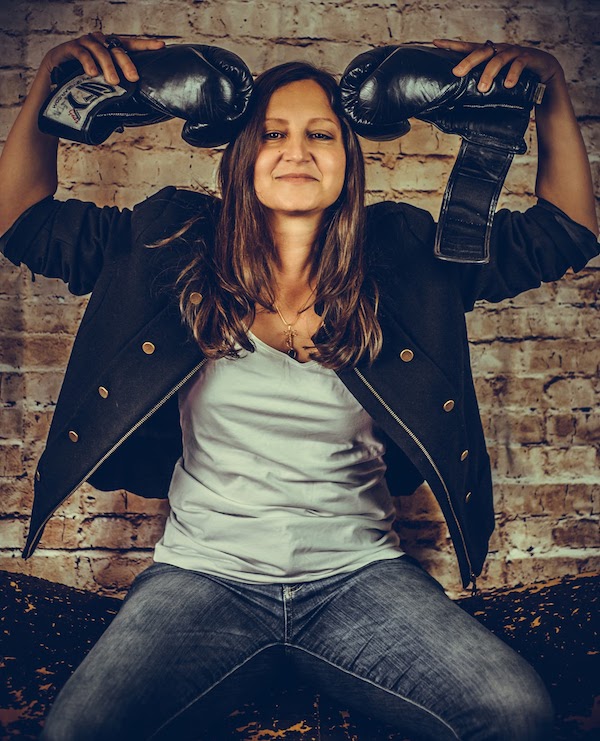
PIP: Do you think that as a culture, we need to talk more about all of this intersectionality?
RS: The one thing I do love about what’s happening right now in our country and in our society, even though there’s a lot to be ashamed and angry about, is I have never been in this country at a time when we’ve talked more about these issues, especially immigration and identity. I absolutely love that. Does there need to be more discussion? Of course there needs to be more, until I personally feel everyone is able to live together, and in a respectful way without trampling on each other’s rights and freedom to live.
I think what I do at least hopefully contributes to that discussion, in a way where I’m able to express or have people connect with the experience and be empathetic with an experience the audience may not have thought of and not be privy to in the past. I’m hoping that’s what I can contribute through my content and specifically through “CHOKE.”

PIP: Definitely! So when and how did you get into filmmaking?
RS: When I was younger, when I was in the Middle East, I basically stole my family’s huge VHS camcorder they got to document birthday parties and celebrations. I would dress my siblings up in costumes, and we’d make fun commercials and movies. I’d say the first official short film I ever made was a cheesy short film called “Never Give Up” that my mom was a Director of Photography for when I was 12 years old, which I’ll never show anyone!
When I moved to the U.S., everyone wanted you to have a pragmatic degree, so I got a degree in computer science because I was a complete nerd. But there was just this itch. I thought I probably couldn’t be a filmmaker, because it was something so untouchable at the time. I thought, “Why don’t I just write? I can write.” So I bought a bunch of screenwriting 101 books, and I just kept reading through them. Then I wrote my first script, and then my second script. I tried to sell them in Hollywood, and of course I fell flat on my face, because they were awful.
But I said if nobody’s going to make my movies, I should learn to make them on my own. That’s how that started, back in 2000. I wrote a short film and I had no clue what I was doing. I wrote it and I just got a crew and stared learning on the job. I did my short film and another short film and another short film.
Then I paid my editor to essentially let me sit behind his shoulder and bug him incessantly, hour upon hour, so I could learn how to edit. Then I started editing all my stuff, and I just kept going. Then I did my first feature film, and my second feature film, so I’m completely self-taught. It was definitely school of the hard knocks, but that’s how I got into it. I do it full-time now.
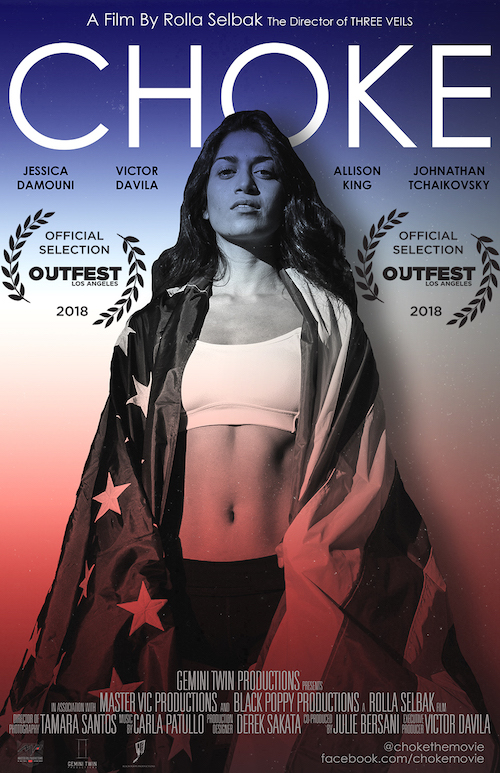
PIP: Tell me about your latest film “CHOKE” — what led you to create it? Is some of it based on your life?
RS: It’s not based on my personal experience, but it definitely touches upon the intersectionality of subjects that I think is really at the forefront of my mind and heart right now, and I think is also at the forefront of public discourse, which is immigration and identity.
I just love the idea of an immigration story that was almost an anti-identity one, where the character really wanted to shun their own identity and where they’re from in order to survive. I really love the idea of a character almost literally fighting for who they are.
I also wanted to show the complexity of “what does it mean to lose your home?” and “what does it mean to find another home?” without being preachy and without doing what we see a lot already, which is about the victimization of refugees or immigrants: “Oh, look at them, they’re so sad.” Because I’m an immigrant myself, and of course there are times when I feel really down and out, but I think it’s also important for us to see the strength and empowerment of such characters as well. That’s how I was really trying to approach the piece.
As far as MMA stuff, I’m an avid martial arts fan, specifically muy thai, ju jutisu, and MMA. I thought it would be a fun, creative way to add a layer of power and of vulnerability at the same time through fighting. I have practiced those myself for a very, very long time; I started with karate. Then I got into aikido and boxing. It wasn’t until I found muy thai, which is the primary martial art that’s used in MMA — I never felt as confident walking down the road as when I did muy thai. It’s absolutely invigorating and a lot of fun; anyone can do it and it’s very practical and useful for everyone.
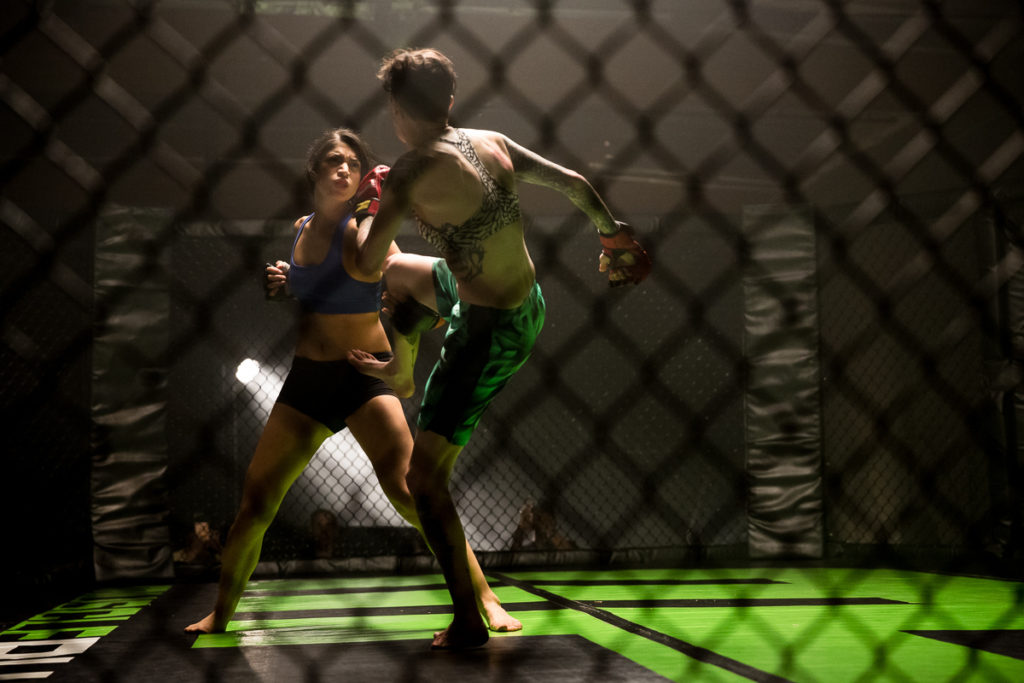
PIP: What kind of impact do you hope to make through “CHOKE”?
SR: In the end, I really aim to make compelling pieces of film that make you feel with the story and with the character instead of being led to feel or think a certain way. I think that’s really important to put something on screen where the audience feels something without having to assume, “Oh, that’s what they want us to think.”
I hope I accomplish that with this film and that I make the audience feel with the character who’s going through this identity crisis, and who’s also going through the rise and fall of her career and having to hide who she is. I think we can all connect with having to hide who we are at some point in time, no matter what that part of hiding is, in order for us to make it or survive or in order be accepted or succeed or excel, or just be left alone.
Learn more about Choke on Instagram or Facebook.

